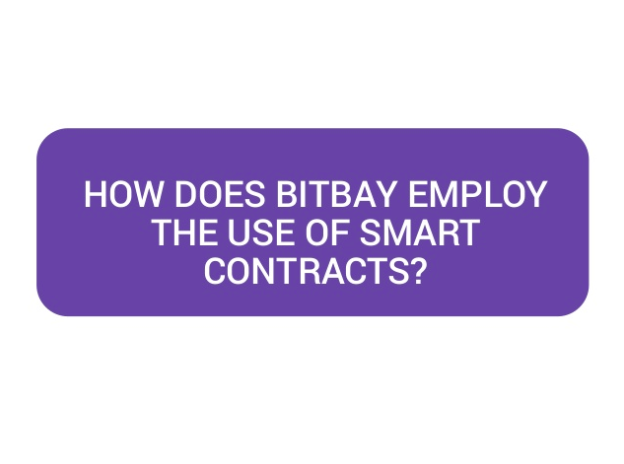
How Does a Traditional Transaction Work?
In today’s world, most transactions take place through credit or debit card. If you wished to purchase a new phone, then you would swipe your card at the merchant and the data would be transferred to the store’s processor. This processor would then send the request to the network of the card you used (Visa, Mastercard, etc.). The card network then transfers the request to the bank that issued your card, who then approves or denies the transaction based on the standing of your account. If approved, this info is sent back to the card network, which is then sent back to the processor, and subsequently sent back to the merchant. Three different entities (including at least two with which you have no contact) will pass your info back and forth in order to complete a simple exchange.
As you can see, this process is very inefficient with many steps and middlemen involved. With the introduction of blockchain technology we now have many attractive alternatives, some of which involve smart contracts.
What Are the Benefits of Smart Contracts?
With smart contracts, blockchain technology is used to enhance our lives beyond the use of cryptocurrencies’ basic features, something which can be seen as “blockchain 2.0” (similar to smartphone apps that have taken mobile phones to the next level). While Bitcoin gave birth to the blockchain as a decentralized currency, blockchain 2.0 takes this a step further and enables the decentralization of markets and assets in general when it comes to business in its various forms & with its various actors.
Smart contracts contain the terms and conditions of an agreement between two or more parties, whether they be individuals, corporations, or public institutions. The parties agree on a transparent blockchain smart contract which is then enforced by executable computer code on the blockchain network. These types of contracts have the ability to both self-execute and self-enforce. This means that it is possible for two parties without any prior knowledge of each other to enter into an agreement without interference from a third party mediator. More advanced contract code allows for agreements to occur automatically and without human initiation through the Internet of Things (IoT). This can save a great deal of time and money while at the same time ensuring people’s freedom of action & privacy.
Smart contracts & blockchain technology enable agreements that cannot be secretly altered. There will no longer be questions of forgery or one party changing the terms of the agreement after the contract has already been signed. Through the transparent nature of blockchain smart contracts, blockchain users can view the entire history & conditions of the contract. If any change were made it would be visible to everyone. Furthermore, because blockchain technology is open source, any vulnerabilities or security risks would be viewable to users as well, hence making it a peer-reviewed technology (instead of the usual proprietary technology hidden behind NDAs that is so common in centralized solutions).

How Does BitBay Employ the Use of Smart Contracts?
BitBay’s lead developer, David Zimbeck, was the first person in the world to create blockchain smart contract software (even before Ethereum) by releasing Bithalo in early 2014, a contracting software for Bitcoin, which later led to the creation to Bitbay. BitBay incorporates unbreakable smart contracts into its platform in order to allow for fully trustless peer-to-peer business, making centralized services and middlemen a thing of the past.
For example in a typical trustless smart contract called a double deposit escrow contract, when two users enter into an agreement, they must deposit an agreed upon amount of $BAY into an escrow joint account. This serves as a strong incentive for each parties to fulfill their respective end of the agreement because only if the contract is successfully conducted will both parties recover their collateral deposit. If one party does not hold up their end of the bargain, the other can refuse to release the locked $BAY by not confirming the contract as done and hence, unless both parties find a commonly agreed upon solution, by the end of the contract’s time both will lose their collateral money. This way only honesty is rewarded and dishonest people or scammers can’t win in this system. Of course these contracts are fully customizable and actors are also recorded by a decentralized reputation system so that you can know in advance if you deal with a good, bad, or neutral actor.
BitBay’s smart contracts offer buyers and sellers of goods, services, assets, and commodities all the benefits of escrow without the associated costs and limitations. A number of templated smart contracts are available for use, depending upon a person’s reasons for using the platform. For example:
*Buy/Sell Anything — This template can be used by buyers and sellers to set up sales agreements. This could be a straightforward exchange, or users could create or participate in auctions and reverse auctions. Bid on items you want to buy or have sellers compete for your sale by lowering their price.
*Buy/Sell Coins — Buying altcoins can be a lengthy process because you first have to buy Bitcoin and then transfer it to an exchange where you can trade it for the altcoin you want. However, using BitBay’s ‘buy/sell coins’ template allows you to purchase & sell currencies directly in the BitBay client from other users. No more multi-step hassle.
*Barter/Trade — This template exists for users who don’t want to exchange any sort of currency. Instead, they could exchange goods for services or goods for other goods. People who use this template fill out a wish list and supply list so that other users with compatible wants and needs may work out a deal.
*Find a Job/Hire Someone — Not only can BitBay be used to sell items you no longer want or need like a traditional auction or marketplace site, it can also be used to post and browse jobs. The ‘find a job’ and ‘hire someone’ templates assure employees that they will be paid for their completed work and employers that the job will be performed to their specifications.
If none of the available templates suit a person’s needs, they do have a couple options to create a customized smart contract that is more in line with what they want to achieve.
*Custom Contracts — With the custom contract option, you set unique parameters for your agreement and aren’t constrained by predefined terms.
*Python Contracts — If you are familiar with the Python coding language, you can use this option to create your own contract. If your idea is really good, it may be added to BitBay’s approved list of templates after being reviewed.
There are many advantages of smart contracts over more traditional contracts. Since they are enforceable without middlemen, the cost savings & freedom gained are significant, especially as Bitbay permits anonymity, hence providing privacy. Because the technology is open-source, transparent, and ensured by the blockchain, both parties can rest assured that they won’t become the victim of fraudulent activity. The risk of lawsuits and theft are greatly reduced, and international deals are more possible thanks to the removal of legal barriers. BitBay has been a leader in the smart contract revolution and will continue to innovate in this arena as more and more people discover the ways that smart contracts can be of benefit to them.
